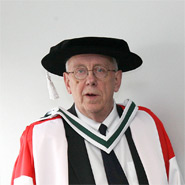 So right now I am working through parts of William Paley's Evidences of Christianity (1794), mainly so that I can understand the marginalia John Henry Newman left in his copy. He marked the book up a good deal in preparation for his first Essay on Miracles (1826), and relied upon Paley as an initial guide in responding to Hume's critique of miracles in the Enquiry Concerning Human Understanding (1748). However, by the time he wrote his second Essay (1843) more than fifteen years later, Newman had come to think of Paley's evidence-based approach (similar to some apologetics still practiced today) as tending toward rationalism, misguided in its insistence on the priority of rational proof over the grounds provided by rational faith.
So right now I am working through parts of William Paley's Evidences of Christianity (1794), mainly so that I can understand the marginalia John Henry Newman left in his copy. He marked the book up a good deal in preparation for his first Essay on Miracles (1826), and relied upon Paley as an initial guide in responding to Hume's critique of miracles in the Enquiry Concerning Human Understanding (1748). However, by the time he wrote his second Essay (1843) more than fifteen years later, Newman had come to think of Paley's evidence-based approach (similar to some apologetics still practiced today) as tending toward rationalism, misguided in its insistence on the priority of rational proof over the grounds provided by rational faith.In one of the remarkable notes written inside his copy of the Evidences, Newman wrote this:
NB. Jan. 13. 1836
* Paley assumes a miracle is the only way of ascertaining a rev [revelation]. -- true, ascertaining--but why need for ascertain? faith lies in acting upon what is before one, before ascertaining -- vid [vide] St Antony’s remarks. This seems to be in its consequences, etc., the evil of such a line of argument as Paley’s, leading one to rely on reason {later inserted in place of reason: “a more explicit reason or argt. [argument]}, which is a slow and carnal principle. “I will not believe, till it is proved to me, etc., etc.” --
Hinting at the argument he would make a few years later in the Thirteenth University Sermon, Newman holds that Paley relies too much on "explicit reason," overlooking the priority of that deeper, more foundational faculty, "implicit reason," a faculty allied with faith.


